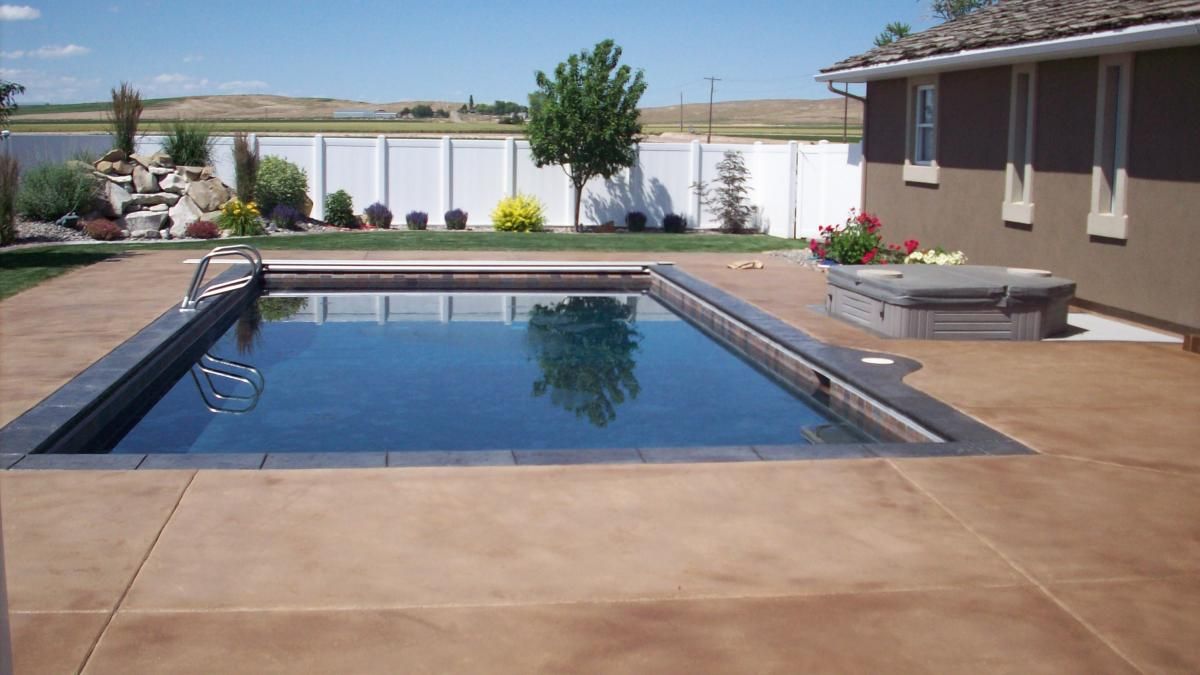
When it comes to maintaining your pool deck, the type of coating you choose is critical for ensuring its longevity, appearance, and functionality. Your pool deck isn’t just a place to relax; it’s exposed to harsh weather conditions, foot traffic, and pool chemicals that can cause it to deteriorate over time. In this article, we will explore the best types of pool deck coating available, highlighting their benefits and why they are the best options for pool deck surfaces.
Why Does Pool Deck Coating Matter?
A proper pool deck coating isn’t just about aesthetics; it serves functional purposes such as slip resistance, UV protection, and overall durability. Without the right coating, your pool deck can crack, fade, and become a hazard over time. Investing in high-quality pool deck coatings ensures a safe, visually appealing, and long-lasting surface.
1. Epoxy Coating
One of the most popular options for pool decks is epoxy coating. Known for its durability and resistance to water, epoxy is a tough material that can protect your pool deck from chemical exposure, UV rays, and general wear and tear.
Advantages of Epoxy Coating
Durability: Epoxy is highly resistant to cracks and breaks, making it an ideal choice for areas with heavy foot traffic.
Waterproofing: Its water-resistant properties make it suitable for poolside environments.
Customizable: Epoxy comes in a variety of colors and finishes, allowing for a custom look that matches your outdoor space.
Slip Resistance: Epoxy coatings can be modified with anti-slip additives to reduce the risk of falls, especially around wet areas.
Disadvantages of Epoxy Coating
Application: Epoxy requires a professional application to ensure long-term durability and proper curing.
Heat Retention: While epoxy is strong, it tends to absorb and retain heat, which can make it uncomfortable to walk on during hot weather.
2. Polyurethane Coating
Another excellent option for pool deck coatings is polyurethane. This material is highly resistant to UV radiation and remains flexible over time, making it less prone to cracking.
Advantages of Polyurethane Coating
Flexibility: Polyurethane can expand and contract with temperature changes, making it less likely to crack in extreme conditions.
UV Resistance: It provides excellent protection against sun damage, making it a good choice for outdoor pool areas.
Scratch Resistant: Polyurethane resists surface scratches better than many other coatings, maintaining its appearance longer.
Disadvantages of Polyurethane Coating
Cost: Polyurethane coatings tend to be more expensive than other options.
Application Time: The drying time for polyurethane is longer, meaning your pool deck may be out of commission for a few days.
3. Acrylic Coating
A budget-friendly and popular choice for homeowners, acrylic coatings are ideal for pool decks due to their versatility and aesthetic appeal. Acrylic coatings can be applied over various surfaces, including concrete, and offer a smooth, clean look.
Advantages of Acrylic Coating
Affordability: Acrylic is one of the most cost-effective solutions for pool deck coatings.
Heat Reflectivity: Unlike epoxy, acrylic coatings reflect heat, making the surface cooler and more comfortable to walk on, even in the hottest months.
Fast Drying: Acrylic dries quickly, reducing the downtime needed to complete the project.
Disadvantages of Acrylic Coating
Durability: Acrylic isn’t as durable as epoxy or polyurethane, and may require more frequent touch-ups.
Weather Sensitivity: While acrylic is flexible, it doesn’t hold up well in extreme weather conditions, especially high humidity.
4. Rubber Coating
Rubberized coatings are increasingly becoming popular due to their unique properties. Ideal for slip-resistance, rubber coatings provide a comfortable, cushioned surface that’s perfect for families with young children or elderly individuals who are at risk of falling.
Advantages of Rubber Coating
Slip Resistance: Rubber coatings are inherently slip-resistant, even when wet, making them one of the safest options for pool decks.
Comfort: The cushioning effect of rubber is gentle on bare feet and reduces the likelihood of injuries from falls.
Noise Reduction: Rubber absorbs sound, creating a quieter outdoor environment.
Disadvantages of Rubber Coating
Appearance: Rubber coatings tend to have a less refined look compared to epoxy or acrylic finishes.
Maintenance: Rubber requires regular cleaning to prevent mold and mildew buildup due to its porous nature.
5. Stamped Concrete Coating
For those who prefer the look of natural stone, stamped concrete coatings are a fantastic choice. These coatings can mimic the appearance of expensive materials like slate, brick, or flagstone, offering a high-end look without the hefty price tag.
Advantages of Stamped Concrete Coating
Customizable Designs: Stamped concrete offers a wide range of design possibilities, allowing you to create a unique aesthetic for your pool deck.
Durability: Like other concrete-based coatings, stamped concrete is durable and can last for years with minimal maintenance.
Cost-Effective: Stamped concrete gives the appearance of high-end materials without the associated cost.
Disadvantages of Stamped Concrete Coating
Slip Resistance: Unless a slip-resistant additive is used, stamped concrete can become slick when wet.
Maintenance: Stamped concrete may require periodic resealing to maintain its appearance and prevent wear.
Choosing the Right Pool Deck Coating
Selecting the best pool deck coating depends on several factors, including climate, budget, and your aesthetic preferences. Epoxy and polyurethane are ideal for those seeking durability, while acrylic is perfect for those on a budget looking for a heat-reflective surface. Rubber coatings provide safety for families, and stamped concrete adds a touch of elegance.
Conclusion
The right pool deck coating can significantly enhance the safety, durability, and appearance of your outdoor space. Whether you prioritize durability, affordability, or aesthetic appeal, there is a pool deck coating that fits your needs. By making an informed decision, you can extend the life of your pool deck and improve your overall poolside experience.
